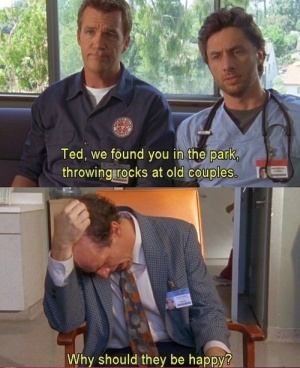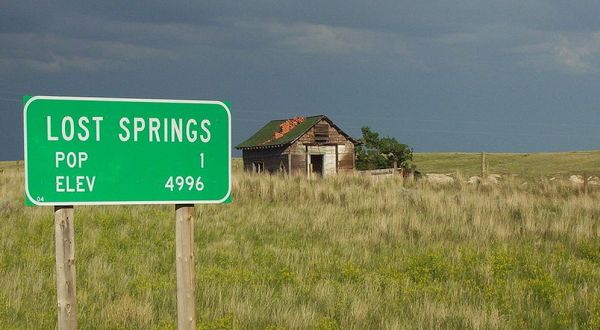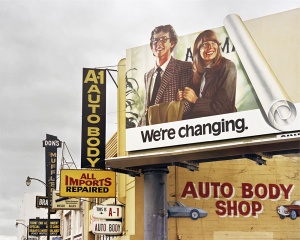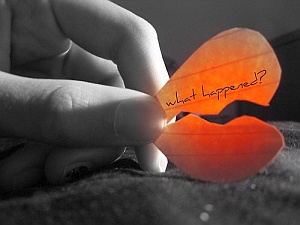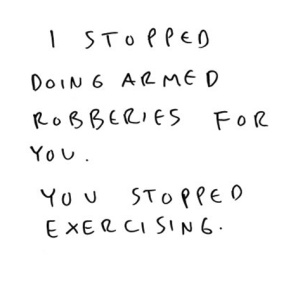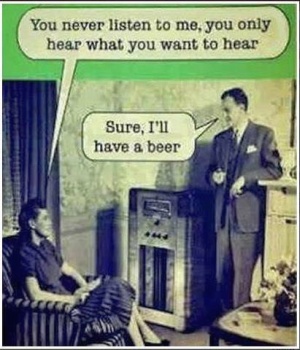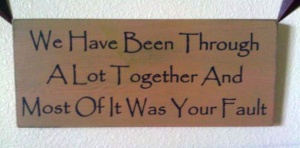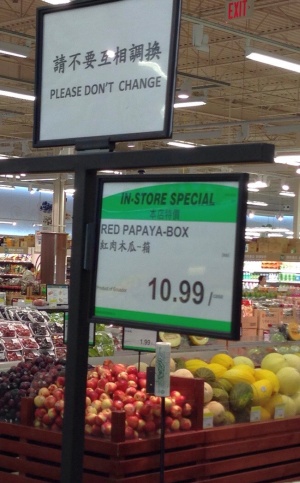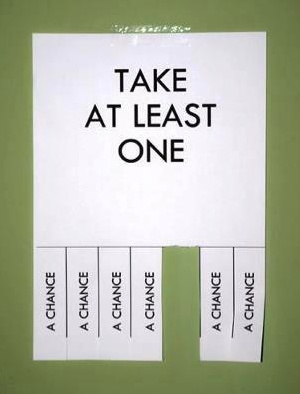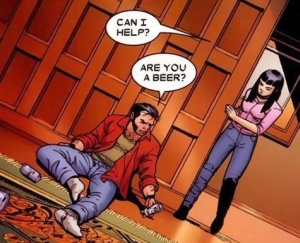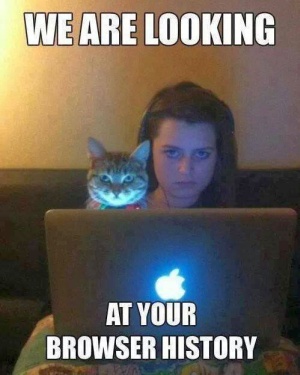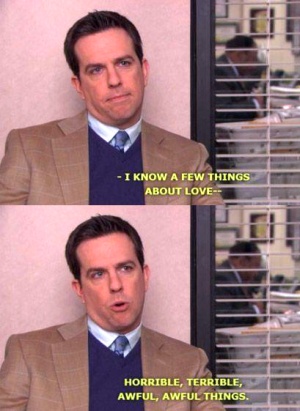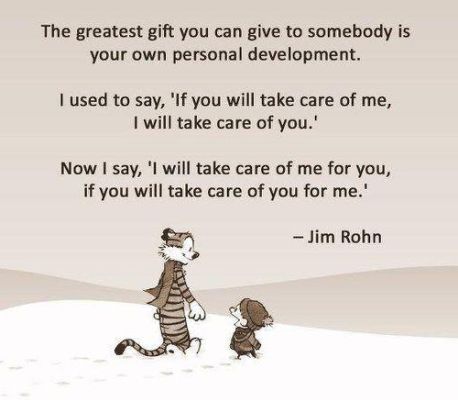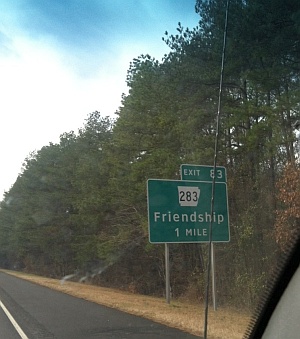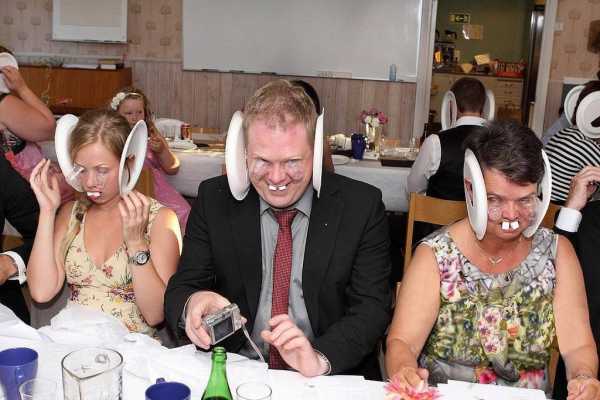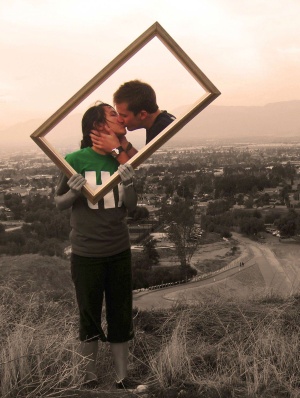Video (29 mins)
Summary
- Tip 1: A Couple Of Scary Statistics About Relationships And Happiness
- Tip 2: Using Relationships To Get Unstuck
- Tip 3: Relationship Finality
- Tip 4: Attraction
- Tip 5: Your Relationship Or Marriage Is Not A Third Person
- Tip 6: To Have A Fabulous Relationship, It Doesn’t Matter What You Do
- Tip 7: Intimacy And Intimidation
- Tip 8: Reduce Threat Continuously
- Tip 9: The Toxic Effects Of Arguing
- Tip 10: Stop Being Right And Stop Being Wrong
- Tip 11: You Can’t Change Your Partner So Stop Trying
- Tip 12: You Change Things By Making Yourself More Vulnerable
- Tip 13: How To Think About Surprises, Secrets And Betrayals
- Tip 14: How To Think About Couples Counselling / Relationship Counselling / Marriage Counselling
If you’d like help applying these tips in your relationship, see if we’re a match.
Top photo via Everton Vila / Unsplash
Transcript
These are tips about:
- Happiness
- Getting unstuck
- Relationship finality
- Attraction
- How to have a fabulous relationship
- Intimacy, intimidation and threat
- Arguments and right and wrong
- What to do to improve your relationship
- Secrets and betrayals
- How to think about couples counselling
My name is Owen Pearn and I’m a counsellor. I help a lot of people with a lot of problems and often relationship problems are central, even though at first they don’t appear to be central.
I’m making this video now on Valentine’s Day, February 2014 and all the stuff I’m about to say is, of course, general.
If you’d like some quick advice on your PERSONAL circumstances and you’d like to chat with me for half-an-hour or so, no strings attached, it’s super-easy to organise - just shoot me your phone number and I’ll call you. I’m here in Brisbane, Australia and I chat with people all over the world, all the time.
Tip 1: A Couple Of Scary Statistics About Relationships And Happiness
The single most frightening statistic is that about two-thirds of our LIFETIME happiness is driven by our relationship with our emotional partner / emotional companion - our husband, wife, boyfriend, girlfriend, significant other.
We need close relationships with other people in order to thrive and be happy because we’re social creatures.
The capacity for loving relationships predicts a LOT of life satisfaction. The happiest people on the planet are the ones who have deep, meaningful relationships.
So the two categories of relationship UNHAPPINESS are: 1) either you’re miserable and lonely because you’re not in a relationship and you want to be, or 2) you’re miserable and lonely because you are in a relationship and it sucks.
Now, the second frightening statistic is that being lonely will cause you to die sooner, irrespective of whether or not you’re in a relationship. If you’re lonely, your mortality rate is one-and-a-half times greater than someone who isn’t lonely.
This is because connectedness has many emotional benefits and when we feel psychologically safe and supported in a relationship, we spend less time thinking about survival tasks and more time exploring the world.
The takeaway from all this is: the single most important thing you can do for YOUR happiness is connecting with others.
It’s worth working on this, it’s worth doing whatever it takes to improve your relationship skills, it’s worth investing time and money and attention and energy, because if two-thirds of your lifetime happiness is driven by your intimate relationship, it doesn’t matter much what’s going on with the other third. The other third will be driven by your job, your family, your friends, your health, your wealth, what you do for fun, but even if all those are maxed out, if you’re unhappy in your primary relationship, or lack of one, generally speaking you’re going to be unhappy in life.
And it works the other way too: if your primary relationship is GREAT, it will insulate you from setbacks in the other areas of your life.
We live in houses made of each other.
Tip 2: Using Relationships To Get Unstuck
If you’re stuck and experiencing big difficulties in lots of different areas of your life, the fastest way to unstick things is to a) get into a relationship, b) get out of a relationship or c) improve a relationship.
If you think you have LOTS of big problems and your primary relationship, or lack thereof, is one of them, you actually DON’T have lots of big problems - you have ONE big problem and lots of little problems.
If you’re not in a relationship and you want to be, this might be scary because you might be thinking “Oh no! I have to fix these other 13 problems before I’d even CONSIDER dating again” or “Oh no! I’ve been burned too many times, I’m not going to go there again”.
If you’re in love with someone unavailable, you are GUARANTEEING YOUR CONTINUED UNHAPPINESS on a daily basis.
If you’re in a relationship and it’s horrible, this might be scary because you might be thinking about the real possibility that you’re not going to get what you want with your current partner.
Being in relationship always brings us into maximum contact with our growth edge because relationships are people-growing containers.
Comfort is effortless. Happiness takes some intentional work.
Tip 3: Relationship Finality
Every single one of your relationships is going to end and you can NEVER be certain if your current relationship will be your last one or your partner’s last one.
Because if you’re in a relationship:
a) either you or your partner might end it, and then some time in the future, one or both of you might be in a new relationship,
b) your partner might die before you, and then some time in the future, you might be in a new relationship,
c) you might die before your partner, and then some time in the future, your partner might be in a new relationship.
So, especially if you’re in a relationship and you’re unhappy, I find it useful to just spend some time imagining that it won’t be your last one, and maybe it won’t be your partner’s last one either.
I’m currently in the third serious relationship of my life. My first relationship lasted about 25 years, my second relationship lasted about a year and I’m currently about a year into this one. Did I believe this would EVER happen? NOOO!
Tip 4: Attraction
Attraction IS SAFETY AND DANGER SIMULTANEOUSLY.
We’re attracted to “safe-dangerous” people - safe people who trigger us.
For mutual attraction, both you and the other person must experience danger and safety simultaneously.
If there’s massive danger plus massive safety there will be MASSIVE attraction.
If there’s danger and no safety, that’s just like “Get away from me!”.
If there’s safety and no danger, that’s just like “You are boring” and there’ll be no spark.
When we want a committed, long-term relationship and we look for an “ideal partner” match, the person we choose will be a good template match with both the positive and negative traits of our early caregivers and they will trigger our positive and negative emotional programs that we learned in childhood.
When your partner does something and you get angry or scared, you’re NOT reacting to them.
You THINK you’re reacting to them but you’re really reacting to your past.
Your partner’s behaviour is reminding you of your past and you’re reacting to the replay.
We don’t fall in love with other people. We fall in love with the projection of the lost and denied parts of ourselves. That’s why it feels so good. It’s a family reunion.
Tip 5: Your Relationship Or Marriage Is Not A Third Person
People say “My relationship” or “My marriage”.
There ISN’T one!
It doesn’t exist as a third thing outside of you and your partner that has to be satisfied or made happy.
People talk like this to distance themselves from their wants and their partner’s wants, because it’s less confronting.
But it gets in the way.
It’s just you two!
It’s just you two people reacting to things and making your own individual meaning about everything.
Instead of talking about your “relationship” or your “marriage”, talk about yourself or your partner.
If you find yourself saying something like “Look, our relationship needs …”, the RELATIONSHIP doesn’t need ANYTHING. YOU need something.
Only two things matter: What YOU want, and what YOUR PARTNER wants.
Tip 6: To Have A Fabulous Relationship, It Doesn’t Matter What You Do
Love is NOT what YOU do!
Love is what YOU do so that your partner RECEIVES love, so that your partner FEELS loved. We all receive love DIFFERENTLY.
What matters is how your partner RECEIVES what YOU DO.
To have a fabulous relationship, you need MORE than good intentions. It’s very common that when you manifest your good intentions in relationship because you want to make your partner happy and increase intimacy, your partner will receive what you do as anti-loving threats and intimacy will actually decrease!
That’s an example of a dumb thing!
This will happen when you do not have predictive information about what’s going on inside your partner.
Dumb things are the things you do that DON’T get you what you want. In hindsight, you go “Gee, that was dumb”. Dumb relationship things are the skills that we learned from our family and childhood experiences.
Wise things are the things you do that GET YOU what you want. In hindsight, you go “Gee, that worked, I’m going to do more of that”.
Just do less dumb things and more wise things.
Your goal is to be YOUR PARTNER’S BEAUTIFUL.
It’s your partner’s job to teach you how to create safety for them and how to please them.
It’s your partner’s job to teach you how to be their beautiful.
It is your job to teach your partner how to create safety for YOU and how to please YOU.
It’s your job to teach your partner how to be YOUR beautiful.
Your beautiful and your partner’s beautiful will be DIFFERENT, and that’s OKAY, because you are DIFFERENT PEOPLE.
Tip 7: Intimacy And Intimidation
We usually want more intimacy. This means getting close to someone, safely.
The English word “intimate” is related to the Latin words “intimare”, which means to “make known”, “intimus”, which means “inmost” and “timidus”, which means “fearful”.
So you can think of intimacy as “into-me-see”. It’s about letting your partner see your fear, letting your partner in where you’re afraid, trusting that they will not hurt you.
If you trigger a threat response in your partner, you’ve scared them - you’ve intimidated them.
Sometimes when we believe that being “nice” is not going to get us what we want, we play the game called “I’m going to hurt you till you love me” and we deliberately intimidate our partner. We’ll yell, we’ll judge, we’ll stonewall, we’ll do things that we know disturb them and we’ll stop doing things that we know they want. We’ll do lots of overt and covert coercion to try to get what we want.
Intimidation decreases intimacy.
Tip 8: Reduce Threat Continuously
If you want to be loved, you have to make it safe for someone to love you.
If you want to be wanted, you have to make it safe for someone to want you.
If you want to be respected, you have to make it safe for someone to respect you.
What your partner really wants is for you to make it safer for them to get closer to you.
Your partner probably does NOT need more ideas from you on how they should live their life. Be less of an “idea fairy” and more of a “safety fairy”.
We experience the lowest lows and highest highs in relationships. The pain of a breakup feels very horrible and unbounded love feels very wonderful.
The times in our lives when we’re the most triggered are usually in relationship with our emotional partner.
The intimate love experience is a TOWARD experience - it’s a getting-closer experience.
The threat experience is an AWAY experience - it’s a getting-distant experience.
You can make war or peace. Everything you do makes either more war or more peace.
Tip 9: The Toxic Effects Of Arguing
Arguments are death to intimacy. Every time you argue, intimacy decreases.
There’s really no such thing as a “normal silly argument”.
So the more you argue with your partner, the more likely it is that you’ll end up spending lots of time living alone.
Every time you win an argument, you lose a piece of the relationship.
When you win the LAST argument, you lose the ENTIRE relationship. That’s when your partner decides to end it, or they decide to have an affair, or they just check out emotionally.
Every time you start a sentence with the word “But …”, you’ve already won another argument before you’ve said even another word.
If you think you’re “just talking” and your partner thinks you’re having an argument, guess what? You’re having an argument! Remember, it doesn’t matter what you do, what matters is how your partner RECEIVES what you do.
If you say something like “Look, we’re not arguing, this is just an adult discussion and there’s no need to get so upset” you’ve just won another argument.
If you say to your partner “You’re confused”, you’ve just won another argument. Your partner is not confused. They just believe something that you don’t understand yet.
If you want to win ALL the arguments and lose your relationship in ONE SENTENCE, say something like “Gee, you have lots of problems” or “One of us has to be wrong and it’s certainly not going to be me” or “This relationship would be fabulous if it wasn’t for you”.
Arguments are about one person trying to impose their view of reality on the other and any attempt to persuade or argue or win is going to induce a threat response in your partner. A threat response is an away-from-pain response. It’s the opposite of a towards-pleasure response.
Every time you deny what your partner is experiencing, you invalidate them, which is a profound threat trigger.
You want to replace all argument with validation.
Some of the people I counsel argue with me all the time, but I always win, NOT because I win the arguments, but because I’m HAPPIER than them.
Tip 10: Stop Being Right And Stop Being Wrong
There’s a saying: “You can be right, or in relationship, pick one” which I think is true.
I think the opposite is also true, which is: “You can be wrong, or in relationship, pick one”.
If you spend a lot of time thinking about who’s right and who’s wrong, you’re spending a lot of time trying to either win or lose.
Between you and your partner, I suggest you make notions of “right” and “wrong” much less important.
Instead of the word “wrong”, use the word “dangerous” or the word “threatening”.
Instead of the word “right”, use the word “safe”.
Throw out concepts of “fighting”, “disagreement”, “argument”, “justified”, “proper”, “appropriate”, “fault” and “blame” and instead use concepts of “prefer” and “like” and “want”.
Everything YOU do makes SENSE to you.
Everything you do is your best option, because if you had a better option, you’d do it.
Everything YOUR PARTNER does makes sense to THEM.
Everything they do is their best option, because if they had a better option, they’d do it.
You make sense and your partner makes sense 100% of the time.
Validation means finding this.
You are keeping yourself safe all the time and so is your partner.
Others behave in ways that make 100% sense to them, and we hurt or not in response.
To decrease your emotional hurt reaction to what your partner does, increase your curiosity about what your partner is doing inside.
When we learn to validate both our partner and ourselves at the same time, everything starts to calm down.
Tip 11: You Can’t Change Your Partner So Stop Trying
When we want things to change, we always hope, in vain, that our partner will change first. Ha! Ha! Ha!
We always hope that we can get more of what we want without taking any risks.
What we want is: “Make it better, but don’t change anything!”.
Now, you can’t change another human being. There’s a quote I like which is: “You can’t teach a pig to sing. It doesn’t work and it annoys the pig”.
You can’t “make” your partner do anything.
If you’re trying to MAKE someone do something, you’re coercing them, you’re pushing them, you’re pushing them away from you and intimacy will decrease.
The only thing in our control is our behaviour.
All change in a relationship is unilateral.
No one wants to change because change is scary but someone has to lead and it might as well be you.
Often it has to get to a relationship crisis point or loss before people will even think about trying something different. That’s completely normal.
Just a warning here about something I see happen a lot:
Sometimes when people have been very unhappy in a relationship for a long time, and they’re just about out of hope, so they want to improve things really fast, so they start experimenting with changing their behaviour towards their partner, which is what they should do.
The thing is, their partner sometimes panics because things are so different.
Now in response to panic and threat and stress, our temperament will make us favour usually either clinging or avoiding.
If your partner typically clings, their biggest fear is that you will abandon them, so if they panic, they will activate.
If your partner typically avoids, their biggest fear is that you will overwhelm or consume or annihilate them, so if they panic, they will shut down.
Anyway, if we can’t change our partner, and we can only change our own behaviour, what do we do? How do you change things?
Tip 12: You Change Things By Making Yourself More Vulnerable
Intimacy increases when vulnerability is followed by safety.
When we take interpersonal risks and make ourselves more vulnerable and it’s “Okay”, we get closer to our partner and intimacy INCREASES.
When we take interpersonal risks and make ourselves more vulnerable and it’s “NOT okay”, we get further away from our partner and intimacy DECREASES.
One way to think about relationship development is “mutual risking” where “risk” means operating just outside your comfort zone and experimenting with new behaviour with no guarantee of what might happen - things might get worse, things might get better, things might stay the same.
Yes, being vulnerable is scary because to be vulnerable means to be capable of being hurt.
So, how do you make yourself more vulnerable?
This is going to sound REALLY crazy, but the way you make yourself more vulnerable is to TELL YOUR PARTNER WHAT YOU WANT.
Tell your partner what you REALLY want.
Tell your partner 100 things you really want.
Tell your partner EVERYTHING you really want.
Now you might be thinking “Isn’t that going to add pressure to my partner?”.
If you do it the RIGHT way, it REDUCES pressure because it gives your partner lots of predictive information about what’s going on inside you. As long as you’re calm and there’s no ultimatums or time limits involved, it’s fine.
It’s NOT a task list, it’s a MENU.
Think about it:
If someone knows NOTHING about what you want, NOTHING about your intentions, NOTHING about what’s important to you, NOTHING about your history, how much power do they have over you?
Not much.
If someone knows what you REALLY want and what’s really, really important to you, and perhaps stuff that no one else knows about you, how much power do they have over you?
A lot!
If they wanted to, they could probably use that information to hurt you.
So, you’re going to risk revealing to your partner your heart’s desires.
Pretend you’re a kid again.
When we’re kids, we ask for stuff all the time: “I want dinner!”, “I want a toy!”, “I want to do this!”, “I want to do that!”.
Kids are wanting machines. And one reasons kids are vulnerable is because we know EXACTLY what they want.
So you want to use phrases like:
“I want …” “I would like …” “I desire …” “I’m attracted to …” “In the future, I would like …” “I crave …” “I hunger for …”
And you want to give BEHAVIOUR primacy over feelings.
The DUMB thing to say is something like “I want you to respect me” or “I want to feel respected”.
You want to describe the behaviour you have to WITNESS in order to feel respected.
It has to be FILMABLE behaviour - something that your partner says or does. Remember, it doesn’t matter what your partner does, what matters is how you receive what your partner does.
Now, how fast can you go?
You can go as fast as you can make it safe for your partner.
The faster you can make yourself vulnerable, the faster you will get more information about your partner.
Whether or not things turn out “Okay”, you’re going to learn something new about your partner by the way they react.
So, two questions to ask yourself:
1) “What do I want so bad that I would give up all these other things that I want?” 2) “What do I really, really want that I’m really, really scared of?”
Now, about questioning your partner:
We often ask our partner “What do you want to do about…?” and “What do YOU want?”.
We might think that we’re being polite or caring and that may be true, but it’s also the OPPOSITE of being vulnerable. It’s actually an attempt to MAKE OUR PARTNER VULNERABLE.
When we ask our partner what THEY want, we’re actually INTIMIDATING them, because we’re pressuring them to be vulnerable. We’re pressuring them to reveal something that we don’t already know, otherwise we wouldn’t be asking the question.
Questions can be very controlling. You can completely control someone’s internal state just by asking them specially designed questions - that’s what counsellors and therapists do!
So ask your partner LESS QUESTIONS.
Every question that you want to ask your partner can be recast as a statement about YOUR WANTS.
If you ask for what YOU want, your partner doesn’t have to guess. Also, you might get it!
The more secrets we tell our partner, the more information they have on us and the better they can predict us. The more our partner can predict how we’ll behave, the safer they will feel. The safer we make things for our partner, the more of their wants they will share with US.
If you know that your partner is getting what they want, there’s not going to be too much fighting and your partner is not going to be thinking about leaving you and they’ll be far more inclined to do what YOU want.
The great news is our wants are endless.
The more wants you can satisfy for your partner and the more wants your partner can satisfy for you, the happier you’ll be and the happier your partner will be and the more fun you’ll have together and the stronger your relationship will be.
YOU NEVER KNOW WHO WOULD LOVE THE PERSON YOU HIDE!
Tip 13: How To Think About Surprises, Secrets And Betrayals
If your partner is behaving strangely, it means you don’t know what is currently motivating them.
People keep secrets when it’s not safe to tell the truth.
One way of cheating on your partner without actually doing anything, is to knowingly allow them to believe something that isn’t true.
People have affairs when they come to believe that their emotional needs are not going to be met by their partner.
Betrayals don’t hurt until you know and they hurt so much because they steal OUR story of what we believed to be true. They change OUR history without our permission.
Tip 14: How To Think About Couples Counselling / Relationship Counselling / Marriage Counselling
Now, I know exactly what it’s like being on the receiving end of couples counselling because I have personally paid close to ten thousand dollars trying to solve relationship problems in MY life.
Which sounds like a lot but it’s a bargain compared to the ultimate cost of a divorce.
I went through four or five different marriage counsellors and actually finding a relationship counsellor (or any counsellor really) is a lot like dating - you just keep trying until you find someone who’s effective, who you’re comfortable with.
So I have an opinion on what works and what doesn’t and where the shortcuts are.
In a troubled relationship, problems escalate because one or both people involved have exhausted their resources and run out of skills.
Lots of people don’t want their relationship to end, but they also don’t know how to keep it together and often what eventually happens is the person in the most pain seeks out relationship counselling.
If it actually gets to the stage where you both attend even one couples counselling session, it means either you or your partner wants to change everything by yesterday, so things won’t stay the same in a tense relationship because both people have already been coping with it for a long time and they’re sick of it.
So this means that going in to couples counselling, things will either improve or you’ll split.
So the stakes are REALLY HIGH, which is very threat-making, which doesn’t help at all.
And then, just getting to the appointments, you have to take off work early, you have to make sure someone’s minding the kids, you have to coordinate each other’s schedules and the whole thing can become more of a hassle than an asset.
I think a much greater emphasis should be on each person going by themselves. I actually think it’s more useful to talk to someone by yourself than with your partner present.
It doesn’t even matter if your partner won’t go - you can go. By the way, if your partner won’t go, your relationship is in big trouble.
I counsel folks over the phone and over online video which is great because it means you don’t have to go anywhere and you’re in a comfortable environment. It’s much easier than having a shower and getting dressed and working out when you have to leave and driving somewhere and parking and sitting in a waiting room for some indeterminate amount of time.
Anyway, I think the goal of relationship counselling should be to teach you which of your behaviours to change FIRST so that things start improving the FASTEST.
There’s a great lyric in Bloc Party’s “Pioneers” which is “We promised the world we’d tame it, what were we hoping for?”.
I guess the message is: Don’t expect the world to conform to your wishes just by virtue of them being your wishes. Believe me, if the world conformed to MY wishes, there’d be some big changes around here!
So, while I’m not licensed in anything, apart from life, I do claim to know a lot of shortcuts to happiness because I’ve done ALL the stuff that doesn’t work.
The long road has become the short road.
Anyway, I hope you enjoyed all this as much as I enjoyed making it for you, and I’ll leave you with Rumi, who said:
You have no idea how hard I’ve looked for a gift to bring you. Nothing seemed right. What’s the point of bringing gold to the gold mine, or water to the ocean? Everything I came up with was like taking spices to the Orient. It’s no good giving my heart and my soul because you already have these. So I’ve brought you a mirror. Look at yourself and remember me.
Love opens the doors into everything, as far as I can see, including and perhaps most of all, the door into one’s own secret, and often terrible and frightening, real self.
May Sarton
Sometimes the door closes on a relationship, not because we failed but because something bigger than us says this no longer fits our life. So, lock the door, shed a tear, turn around and look for the new door that’s opened. It’s a sign that you’re no longer that person you were, it’s time to change into who you are. It’s going to be okay.
Lee Goff
Everyone, at some point in their lives, wakes up in the middle of the night with the feeling that they are all alone in the world, and that nobody loves them now and that nobody will ever love them, and that they will never have a decent night’s sleep again and will spend their lives wandering blearily around a loveless landscape, hoping desperately that their circumstances will improve, but suspecting, in their heart of hearts, that they will remain unloved forever. The best thing to do in these circumstances is to wake somebody else up, so that they can feel this way, too.
Lemony Snicket
What we find in a soulmate is not something wild to tame but something wild to run with.
Robert Brault

